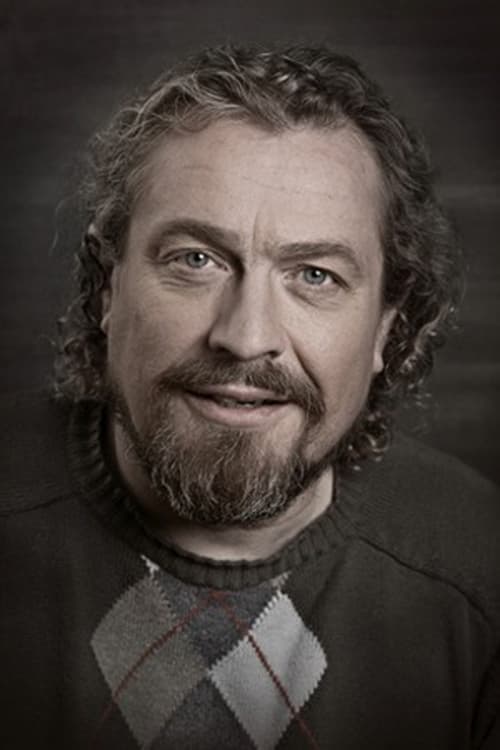
Jaan Rekkor
出生 : 1958-04-03,
略歴
Jaan Rekkor (born 3 April 1958) is an Estonian stage, film and television actor.
Jaan Rekkor was born in the small village of Hõreda in Rapla County. He attended schools in Märjamaa, graduating from the Ants Lauter Märjamaa Secondary School in 1976 (now, Märjamaa Gymnasium). Between 1976 and 1979, he studied journalism at the University of Tartu. He then studied acting at the Tallinn State Conservatory's Performing Arts Department (now, the Estonian Academy of Music and Theatre), graduating in 1982. Among his graduating classmates were Margus Oopkaup, Anu Lamp, Laine Mägi, Sulev Teppart, Andrus Vaarik, and Viire Valdma.
Rekkor's first significant film role came in 1983 as the character Jaanus Roog in the Kaljo Kiisk directed film Nipernaadi, based on the 1928 novel Toomas Nipernaadi by Estonian writer August Gailit. This was followed in 1986 by the role of Jaan Kreuks in the Kaljo Kiisk directed and Mati Unt penned Tallinnfilm biographical drama Saja aasta pärast mais about leading Estonian Communist Party politician Viktor Kingissepp. In 1989, he played the role of Peeter Kängsepp in the Jüri Sillart directed historical drama Äratus, which chronicled "Operation Priboi"; the 25 to 28 March 1949 Soviet mass deportation of more than 90,000 Estonians, Latvians and Lithuanians labeled as enemies of the people to forced settlements in inhospitable areas of the Soviet Union.
In 1992 Jaan Rekkor was cast in the role of Muna in the Mati Põldre directed biographical drama Need vanad armastuskirjad which explored the life of Raimond Valgre, an Estonian songwriter of the 1930s and the 1940s. In 1997, he appeared in the Hardi Volmer directed historical comedy Minu Leninid. This was followed by a role in the 1998 René Vilbre directed short film Perekondlik sündmus.
During the 2000s, Rekkor appeared in several films; most memorably as Roland in the 2005 René Vilbre comedy-family film Röövlirahnu Martin, starring Ott Sepp and Madis Ollikainen; as Coach in the 2006 Laila Pakalniņa directed comedy-drama Koer, lennuk ja laulupidu; a small role in the gritty 2008 René Vilbre directed drama Mina olin siin, which was adapted from the 2005 novel Mina olin siin. Esimene arest by Sass Henno; and as Carabas Barabas in the musical-comedy Buratino, directed by Rasmus Merivoo.
In 2013, Rekkor appeared in the role of Bonifacius in the René Vilbre directed fantasy-film Väikelinna detektiivid ja valge daami saladus. In 2016, he appeared in the Anu Aun directed Luxfilm romantic-drama Polaarpoiss. In 2018, he appeared in the Anu Aun directed family-Christmas film Eia jõulud Tondikakul.
Jaan Rekkor's television debut was the role of Mister Saul in the 1995 Vilja Palm directed Eesti Televisioon (ETV) period drama mini-series Wikmani poised, adapted from the 1988 semi-autobiographical Jaan Kross novel of the same name. Between 1995 and 1998 he appeared on the comedy series M Klubi. In 2013, he appeared in the role of Mart in the Finnish television romantic-drama miniseries Vaarallista kokea. Rekkor would go on to perform in a number of roles in Estonian television series. He is possibly best recalled for his role as Rein Pihelgas in the ETV crime series Ohtlik lend from 2006 to 2007, and as the same character as in the Ain Prosa directed TV3 comedy-crime series Kättemaksukontor from 2010 until 2013. Carmen Mikiver played Rein Pihelgas' wife Ivi.
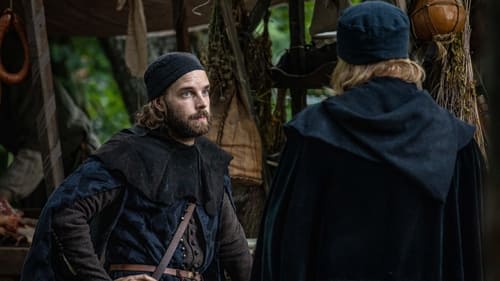
Keterlyn's Father
Melchior’s bride Keterlyn happens to witness an attack on a young man. He has lost his memory and doesn’t know who he is or where’s he from. The only clue is a strange partial letter found on him that warns of grave danger. Melchior’s attempts to understand the circumstances of the young man’s memory loss lead him to uncover a hidden dead body. The partial letter gives Melchior an idea how to lure the killer into a trap... but this time the danger comes too close to home.

Jakop
Jakop, a lone fisherman on the coast of lake Peipus has to decide whether refugees brought to his door are his way of redeeming past sins or merely a means to quickly earn much needed cash.

Milosz
Set in the last days of World War II, a small band of Russian soldiers led by intelligence officer Brana Vasilyeva, who is tasked with trafficking the remains of Hitler back to Stalin in Russia. En route, the unit is attacked by German ‘Werewolf’ partisans and picked off one-by-one. Brana leads her surviving comrades in a last stand to ensure their ‘cargo’ doesn’t fall into the hands of those who would see it buried in order to hide the truth forever.
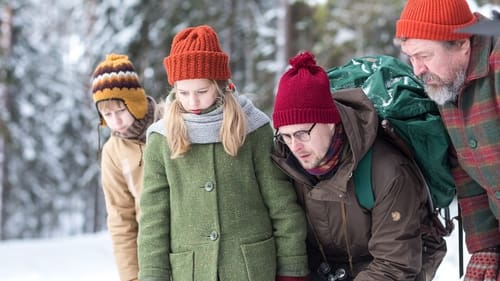
Ott
A 10-year old girl's Christmas plans take an unexpected turn after she is brought to a mysterious Estonian farm.
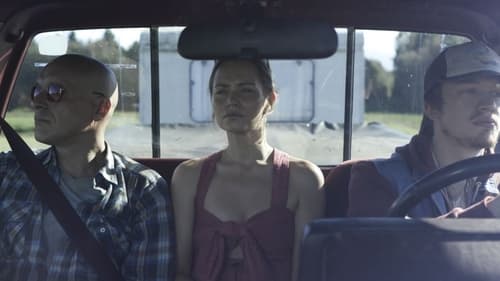
Literary Enthusiast
Karina and Martin are in a pleasent relation where everyday life flows in an effortlessly accustomed way and no small misbehaviours can shake it’s rush. Life is good. Perhaps it’s this perfection and frequent patterns that make them finally pose a question – is everything to be expected in life? This is a story about following the yearning of your soul. Longing for something other than the present and having the courage to be deliberately lost.
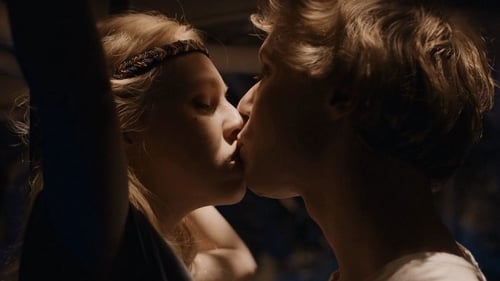
Ott
Mattias has a dream to become a photography student of the Berlin Arts Academy. On the journey of following his calling, his dream is constantly put to a test after Mattias falls in love with a beautiful free spirit Hanna. Trying to win her heart, Mattias feels the need to prove Hanna, that he can be just as adventurous and unpredictable as she is. Breaking the law together with Hanna, Mattias risks everything dear to him, not knowing yet, that Hanna's bold acts are only the symptoms of bipolar disorder. In the moment of jelousy Mattias accidentally commits a crime that could put him behind bars for years. The only escape he sees is to get himself declared irresponsible. In order to achieve that Mattias decides to start faking the illness her gilfriend really has - bipolarity.

Bonifacius
In a quiet resort town Haapsalu four kids are spending their summer holidays together. Suddenly they are dragged into events that started in the 15th century in the local bishop's stronghold. The children must solve a difficult mystery of a clock robbery and they have to find a treasure that has been lost for centuries and contains a formula of making gold.
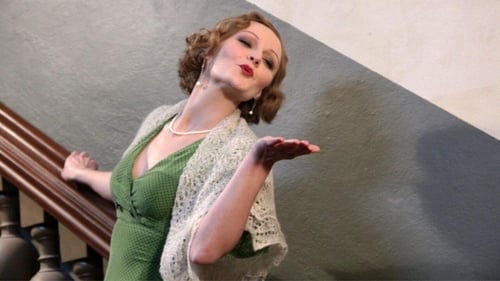
Film VO (voice)
The main character, Helmi, is born into the house of Baron von Strandmann in Old-Town Tallinn, in 1908. The only thing that she knows for sure about her past is that her mother was an Estonian servant girl. Everything else is a discovery during a life that runs the course of a century - a life that has quite a lot of surprises in store for Helmi. In this house she finds happiness and suffering, passion and disappointment. She grows up alongside young Erik and waits for her big love to blossom. But one floor down lives projectionist Julius - a man who is far from indifferent when it comes to Helmi. All of the biggest historical events of the century leave their mark on the house. Its hardwood floors have born soldiers' gruff boots and gentleman's shiny oxfords. Its walls have held the fates of people from far and near, foreigners and locals. Helmi's home becomes a German salon, a revolution museum, and a working class commune. And as freedom comes, real estate crooks start sniffing ...

Carabas Barabas
Imagine a mix of Repo Man, Oliver! and Pinocchio and you're on the road to grasping the tone of this bizarre Estonian take on Aleksey Nikolayevich Tolstoy's character Buratino, a wooden boy (or boyus woodenus, as the doctors in the film refer to him). Buratino's virginal mother wishes upon a star for a son and is immediately answered by what can only be called a rape-splinter. The woman gives birth almost immediately to her little wooden Buratino.

Rough Guy
Seventeen-year-old Rass is growing up in an Estonian suburb. In the absence of a solid home life his family becomes a group of youngsters who are verging on being thieves. Drugs are an inseparable part of their lives, and when Rass agrees to distribute them, he gets tangled up in the narcotics trade. Small amounts suddenly become two-kilo packages that the mafia, to the misfortune of all involved, has not been paid for, and is ready to collect on by force…

Priest
Ivan, a cynical journalist, is assigned to investigate mysterious events in a small town. During his first night, he is seduced by a strange and mysterious girl. As they embrace, she transforms into a hideous demon. Ivan fights the creature, managing to strangle it. But it is too late, Evil has been unleashed. When Ivan is charged for the brutal murder, he feels his last hope disappear. As he is overcome by the dark forces trying to pose as his soul, Ivan comes to realize that his only hope lies in his power to find the faith that he once lost

Coach
The Hijacker lands the plane at the Rīga Airport. 7 year-old Tom, travelling on his own, voluntarily becomes a hostage. Along with the traditional demands, the Hijacker adds the demands of the little hostage – beginning with some local chocolate and a self-instruction tape for learning the native language, and ending with organizing a Song Festival and a special biathletes’ performance – all ideas originating from a CD on Latvia.
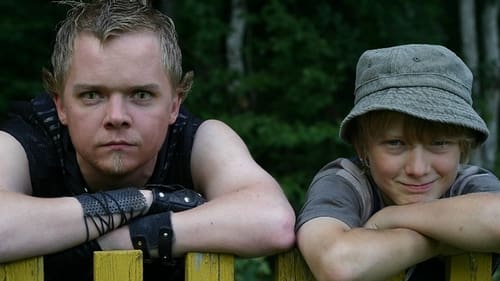
Roland
10-year-old Martin meets a cat, who turns into a boy and helps Martin solve his problems which occurred after he changed school.

Katherine's Father
Young and active nationalist Aleksander Kesküla makes up his mind to use Lenin, the Bolsheviks' leader, in order to start a revolution in Russia with German money and create a new national state of Estonia in the north-east of Russia. For security reasons, five doubles will be found and trained for Lenin. All of them are finally sent to Russia to instigate the revolution. How will the real Lenin put up with all this?

Muna
A film about the life of Raimond Valgre, an Estonian songwriter and singer of the 1930s and 40s, the political changes of his country and his life after the war when his songs were considered not suitable for the Soviet way of life.

It is the night of March 25, 1949. A full moon hangs over Estonia. Endless rows of cattle cars are waiting to transport thousands of Estonian families, asleep in their homes, to Siberia. The Stalinist regime is ready to treat people like animals.
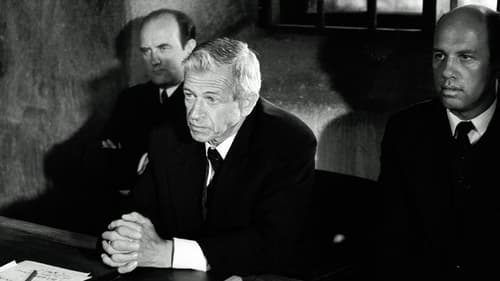
Jaan Kreuks
Viktor Kingissepp has been the underground head of the Communist Party of Estonia for three years. He corresponds with Moscow, writes speeches for the members of the Communist Workers' Party and makes leaflets for the events of trade union. His purpose is to overthrow the Republic of Estonia since he does not believe in Estonian independence nor in any national ideals. Yet the clock keeps ticking, tuberculosis spreads rapidly, the world revolution is being postponed. What to do in order to make one's efforts work?
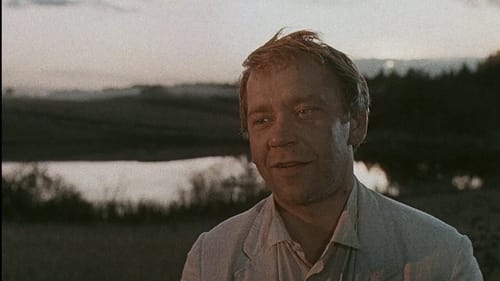
Jaanus Roog
This inventive, tongue-in-cheek comedy-drama not only reveals the charms of the Estonian countryside, but something of director (Kaljo Kiisk)'s sense of amusement as well. The hero of the title, Toomas Nipernaadi (Tõnu Kark) is first seen roaming the rural landscape, going from village to village looking for the woman of his dreams. He wears a bedraggled white suit but generously pays for any lodging he needs or in one case, even buys a farm. Nipernaadi has a way with words and enchants those he meets with his wild stories about himself. Women find him appealing and the men are entertained as he moves from one locale to the next.













